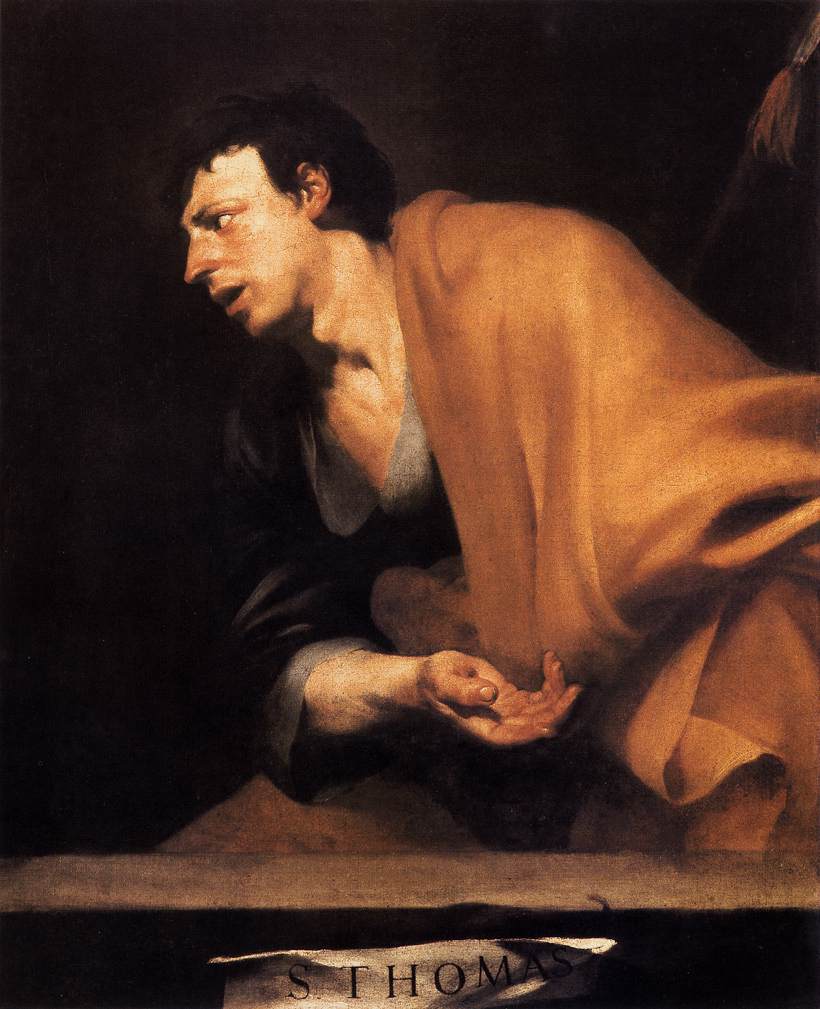Saturday, July 3, 2010
Feast of St Thomas the Apostle
"Dearly beloved brethren, what is it in this passage which particularly claimeth our attention? Think ye that it was by accident that this chosen Apostle was not with them when Jesus came? or, when he came, heard? or, when he heard, doubted? or, when he doubted, felt? or, when he had felt, believed? All these things were not accidental, but Providential. It was a wonderful provision of Divine mercy, that this incredulous disciple, by thrusting his fingers into the bodily Wounds of his Master, should apply a remedy to the spiritual wounds of unbelief in our souls. The doubts of Thomas have done us more good than the faith of all the disciples that believed. While he feeleth his way to faith, our minds are freed from doubt, and settled in faith.
Even as the Lord before his birth willed that Mary should be espoused, and yet never lose her virginity, so, after his Resurrection, he willed that his disciple should doubt, and yet not lose his faith. For, even as the espoused husband was the keeper of the virginity of the Mother, so was the disciple who doubted and felt, the witness of the truth of the Resurrection. He felt, and cried out: My Lord and my God. Jesus saith unto him: Thomas, because thou hast seen me, thou hast believed. When the Apostle Paul saith Faith is the substance of things hoped for, the evidence of things not seen, he plainly meaneth that faith is the evidence of things that cannot be seen. When they are seen, there remaineth not faith, but knowledge."
-- From a homily by St Gregory the Great
** Our brethren observing the 1962 Liturgical Calendar observe St Thomas the Apostle on 21 December.
Painting by Jusepe Martínez
Even as the Lord before his birth willed that Mary should be espoused, and yet never lose her virginity, so, after his Resurrection, he willed that his disciple should doubt, and yet not lose his faith. For, even as the espoused husband was the keeper of the virginity of the Mother, so was the disciple who doubted and felt, the witness of the truth of the Resurrection. He felt, and cried out: My Lord and my God. Jesus saith unto him: Thomas, because thou hast seen me, thou hast believed. When the Apostle Paul saith Faith is the substance of things hoped for, the evidence of things not seen, he plainly meaneth that faith is the evidence of things that cannot be seen. When they are seen, there remaineth not faith, but knowledge."
-- From a homily by St Gregory the Great
** Our brethren observing the 1962 Liturgical Calendar observe St Thomas the Apostle on 21 December.
Painting by Jusepe Martínez
Subscribe to:
Post Comments (Atom)














No comments:
Post a Comment